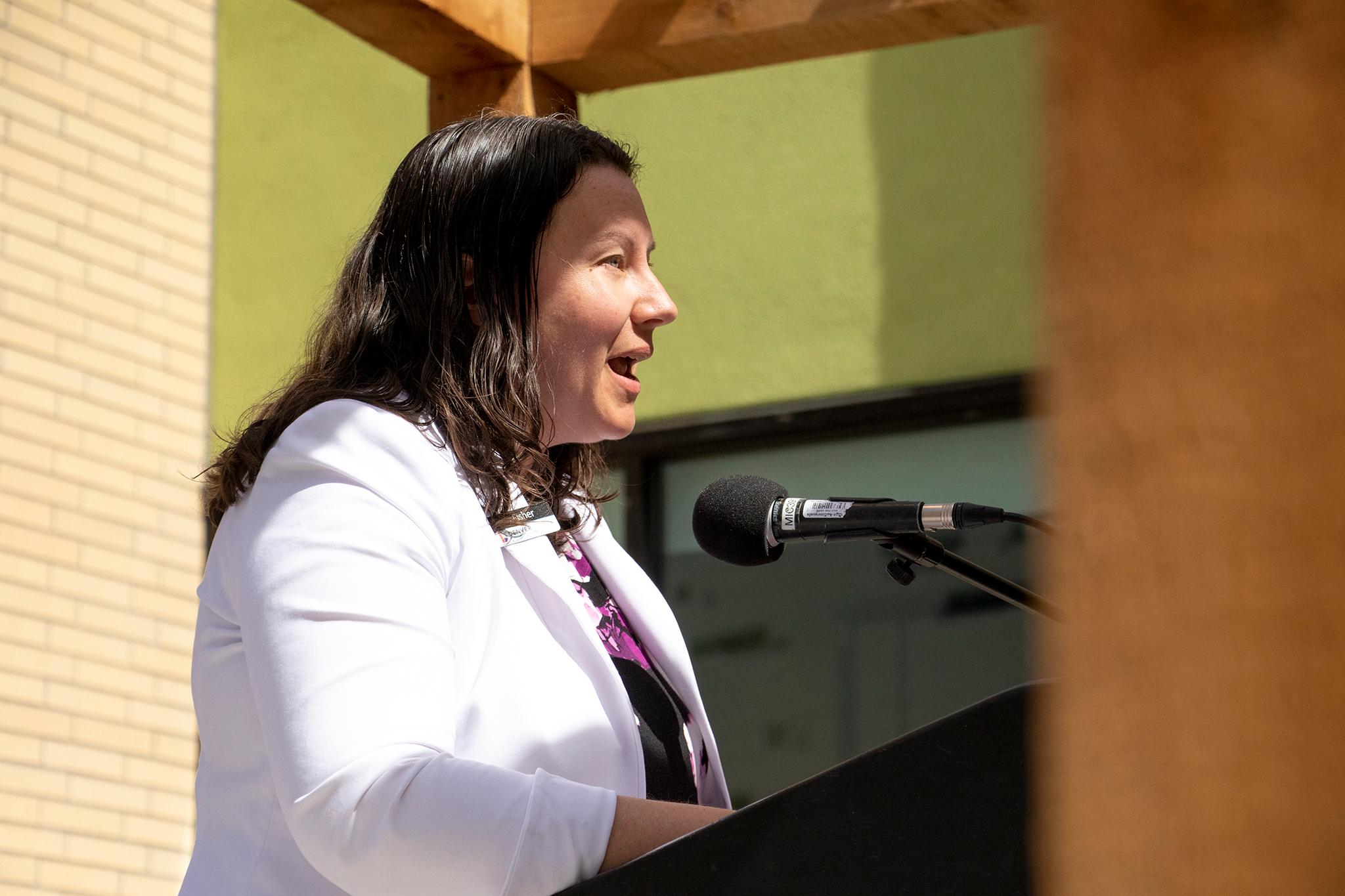It was one of several tense moments that demonstrated a gulf between the auditor and officials charged with stewarding a Denver inventory of homes priced below market rate:
Auditor Timothy O'Brien was pressing top Denver Economic Development & Opportunity housing officials during a public hearing at the City and County Building on Thursday morning to periodically review what might be going wrong after their stock of affordable homes is depleted because of foreclosures.
"That to me is the best practice in any program to ensure that you're on course," O'Brien said.
He said consultants the city has hired would likely make a similar recommendation. He asked Britta Fisher, DEDO's chief housing officer, if she would reject such advice from them.
"We'll have to see what those recommendations are, sir," replied Fisher.
She said it would not be feasible and likely serve little purpose to chase down people who have lost their homes to foreclosure to question them about why. Instead, officials said, DEDO was following broad foreclosure trends and trying to prevent such losses by providing homebuyer counseling.
O'Brien and FIsher's polite face-off came during a regular monthly hearing of the Independent Audit Committee. The top agenda item was O'Brien's second tough review of DEDO's housing operations.

In a statement accompanying the release of the first audit report in December, O'Brien said his team had discovered "serious errors" and was not confident they wouldn't be repeated.
In his latest report, O'Brien said Fisher's department "has not ensured that it is meeting its strategic goals of preserving affordable housing and preventing involuntary displacement."
Fisher, who has been named to lead a planned new city housing department, said Thursday that 92 percent of affordable for-sale homes created by city programs were in compliance with restrictions and that an even higher percentage of affordable for-rent units were in compliance.
"What is the standard? Is it 100 percent?" she said.
Since 2005, according to the audit, 216 homes in the for-sale affordable housing program were foreclosed on and thereafter no longer subject to price restrictions. Another 49 were foreclosed on, but their affordability covenants remained in place. Development department officials have said that in most cases the covenant restrictions meant to preserve affordability are removed in foreclosures in which the bank or other entity that held the first mortgage acquires the property. The department also has said most of the foreclosures were between 2008 and 2013, during the height of the recession.
The auditor also found problems with the development department's evaluation of other aspects of its housing portfolio; oversight of a rental assistance program; and enforcement when rules are violated.
On the question of enforcement, the audit gave as one example an owner who was renting his affordable home in Green Valley Ranch while living in California. Covenant restrictions do not allow affordable homes to be rented and people living there must meet income limits. The owner received a notice of violation and eventually sold the home at an affordable price.
"However, the city has not collected illegal rent obtained by the owner and, as of May 2019, has not decided it if will pursue rent collection," according to the audit report.
About 1,400 homes are covered by a program under which they should be sold only to people earning below the area's average median income and who meet other requirements. DEDO announced last year that 306 homes were possibly out of compliance because covenant restrictions may not have been adhered to when the original buyers sold them. It later raised the number to 355. OED instituted a resolution program and has been able to close many of the cases after finding that owners did have incomes that qualified them for affordable housing or having the owners complete missing documentation or correct problems with their paperwork. In some cases, owners who had broken the rules by renting out their homes moved back into them as primary residences.
In a follow-up email after Thursday's hearing, DEDO spokesman Derek Woodbury said: "All homeowners with suspected compliance issues were treated in a similar manner, which began with the issuance of letters and an invitation to participate in the Compliance Resolution Program."
Woodbury said the public can review the department's rules and procedures here.
Some affordable homes have appeared on short-term rental sites. O'Brien said during Thursday's meeting that that alone was reason to conclude "we're not doing everything we need to do to preserve affordable housing."
In all, DEDO disagreed with six of the auditor's 12 recommendations, saying in some cases the actions advised had already been taken or were barred by law or contract provisions. The recommendations with which DEDO agreed included the need to improve communications with other city agencies and work with vendors to better assess the impact of rental assistance and other programs.
"I am disappointed Economic Development has chosen not to take seriously all of our recommendations to rectify the issues identified in our report," O'Brien said in a statement. "Our recommendations could help city leaders move forward with a much more efficient and effective new approach to affordable housing."
Among other auditor recommendations that DEDO rejected was regularly asking all homeowners to sign documents attesting that they are following the rules. While the audit team described that as a best practice adopted in other cities, DEDO officials said it would be cumbersome to implement and would mean diverting staff from other tasks.
During Thursday's meeting comparisons were made to Excise and Licenses, which has in recent months referred to the district attorney cases of homeowners -- not of units in the affordable program -- breaking the rules on short-term rentals and lying in affidavits. Excise and Licenses requests affidavits only if its staff believe a strong possibility exists that the property being offered as a short-term rental is not the landlord's primary residence. Excise and Licenses says requiring short-term landlords rent out only their primary residences is one way to preserve affordable housing in the city by preventing the conversion of too many units from residential to tourism uses.














